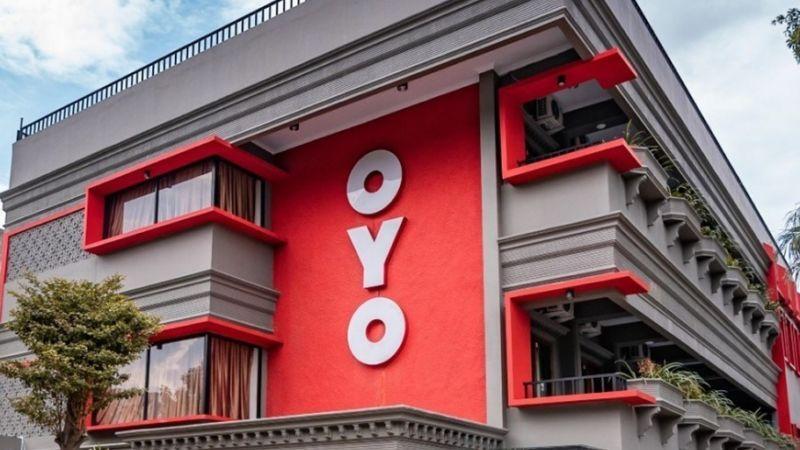
Why is ‘#BoycottOYO’ Trending on Social Media?
On Friday, the hashtag ‘#BoycottOYO’ was trending on social media platforms, with people across the globe expressing their outrage over a recent advertisement by the Ritesh Agarwal-led company, OYO. The advertisement, which read “Bhagwan Har Jagah Hai, Aur OYO Bhi (God is everywhere, and so is OYO),” sparked a heated debate, with many questioning the company’s audacity in comparing itself to the divine.
The advertisement, which was released on social media, was met with widespread criticism, with many users taking to Twitter to express their discontent. “Where did OYO get the courage to compare itself to God,” an X user asked, while another said, “Playing with our faith? You’ll regret this arrogant stunt.”
So, what triggered the outrage? And why did the hashtag ‘#BoycottOYO’ become a trending topic on social media? In this blog post, we will explore the reasons behind the backlash against OYO and the impact it had on the company’s brand reputation.
OYO’s Bold Claim
OYO, which is one of India’s largest hospitality companies, has been in the news recently for its aggressive marketing strategies. The company, which has disrupted the hotel industry with its affordable and tech-enabled services, has been expanding rapidly across the globe. However, its latest advertisement has sparked controversy, with many users questioning the company’s bold claim of being everywhere, just like God.
The advertisement, which was released on social media, featured a series of images and videos showcasing the company’s presence in various parts of the world. The tagline “Bhagwan Har Jagah Hai, Aur OYO Bhi (God is everywhere, and so is OYO)” was meant to convey the company’s message of being omnipresent. However, it was met with widespread criticism, with many users accusing the company of being arrogant and disrespectful.
Outrage and Backlash
The backlash against OYO was swift and severe. On social media, users began sharing their outrage and disappointment, with many calling for a boycott of the company. The hashtag ‘#BoycottOYO’ began trending on Twitter, with users sharing their own experiences of dealing with the company’s subpar services.
Many users also questioned the company’s motives behind the advertisement, with some accusing it of attempting to hijack religious sentiments. “OYO is not God, and it will never be,” said one user. “Stop playing with our faith, OYO.”
Impact on Brand Reputation
The backlash against OYO has had a significant impact on the company’s brand reputation. The hashtag ‘#BoycottOYO’ has been trending on social media for days, with many users calling for a boycott of the company. The company’s shares have also taken a hit, with many investors expressing concerns over the controversy.
In a statement, OYO apologized for any offense caused by the advertisement, saying that it was meant to convey the company’s message of being everywhere. However, the move has come too late, with many users calling for a complete boycott of the company.
Lessons Learned
The controversy surrounding OYO’s advertisement is a stark reminder of the importance of cultural sensitivity and awareness in marketing. Companies must be careful not to offend religious sentiments or cultural norms, as it can have severe consequences for their brand reputation.
In conclusion, the hashtag ‘#BoycottOYO’ trended on social media recently due to the company’s bold claim of being everywhere, just like God. While the company may have intended to convey a message of omnipresence, it was met with widespread criticism and outrage. The controversy has had a significant impact on the company’s brand reputation, serving as a reminder of the importance of cultural sensitivity and awareness in marketing.
Source:






